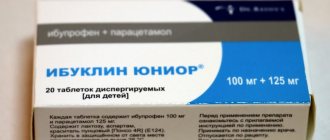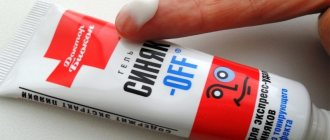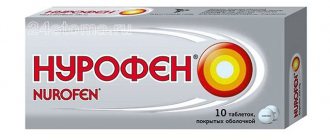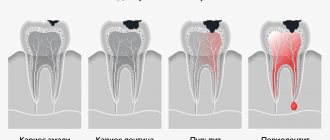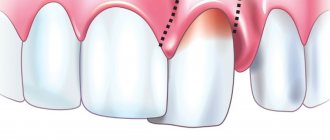Every person has experienced pain at least once in their life. Everyone knows how inopportune she always is, how she unsettles her and ruins her plans. Everyone is always looking for a way to end this nightmare as quickly as possible. And each person has his own proven remedy. In fact, some painkillers are not entirely harmless. Therefore, you should not grab the first available remedy for pain. It's better to listen to specialists.
Types of pain
There are different types of pain.
Experts divide all pain into two categories:
- acute, appears suddenly, usually due to injury, does not last long;
- chronic, lasts a long time, occurs as a result of chronic inflammation.
When taking medications for pain, you should consider the type of pain. In some cases, it is prohibited to use painkillers. For example, with acute abdominal pain. This way the disease can be veiled, as a result doctors will not be able to accurately diagnose the disease.
When can you try to do without analgesics?
If the pain is mild or moderate, if you have already experienced it, it is not accompanied by other symptoms, it is not at all necessary to immediately take painkillers. Most often, tension headaches and low back pain are relieved without pills. It is enough to simply eliminate the factors that provoke it: relax, distract yourself from negative thoughts, take a comfortable position, etc. For pain in the lower back, it is quite possible to make a corset at home from a sheet (diaper) and folded newspaper for temporary fixation of the lumbar region . In cases where sudden pain is accompanied by nausea, vomiting, numbness or weakness in the limbs, speech impairment, facial asymmetry, you should urgently call an ambulance. Acute, unremitting pain in the abdominal area is also a reason to urgently see a doctor.
Mechanism of action of painkillers
When tissue damage or inflammation occurs, a signal travels along the nerve endings to the brain. In the damaged area, irritation of the nerve endings occurs. As a result of muscle contraction, a spasm occurs.
Painkillers act as follows:
- inhibit nerve impulses that transmit pain;
- soothe irritated nerve endings;
- relieve muscle spasms.
Depending on the type of pain, painkillers are used.
Types of painkillers
Remedies for pain are divided into several types:
- Narcotic drugs. They depress the nerve centers that respond to pain. As a rule, such drugs cause relaxation, euphoria, and drowsiness. Such products are issued only with a medical prescription.
- Non-narcotic drugs. They do not affect the nervous system, do not cause drowsiness or euphoria. Therefore, such drugs are sold without a prescription. They usually also have anti-inflammatory and antipyretic properties.
Non-narcotic painkillers are divided into groups:
- NSAIDs (non-steroidal drugs) have an anti-inflammatory effect, lower temperature, relieve pain;
- Antispasmodics for spasms;
- mixed preparations eliminate spasms and pain.
Narcotic drugs are not commercially available and therefore are not used for self-medication. The most common drugs are NSAIDs. They quickly relieve pain and inflammation, but have many contraindications and side effects. They are especially dangerous in case of ulcerative lesions of the gastrointestinal tract or if they are suspected. Because they can cause gastric bleeding and aggravate ulcers of the stomach and intestinal mucosa. This can sometimes be fatal.
Non-narcotic painkillers
The most popular drug Aspirin belongs to this group. It contains acetylsalicylic acid. In addition to relieving pain, it lowers temperature and thins the blood. Therefore, it should not be taken by persons with reduced blood clotting. It is also contraindicated for damage to the gastric and intestinal mucosa. The drug may cause bleeding.
It is also not given to children under fifteen years of age.
There are analogues of aspirin:
- Upsarin Upsa;
- Aspirin Cardio;
- Aspicor;
- Citramon;
- Thrombo-ass;
- Cardio-magnyl;
- Anopyrine.
Paracetamol is also included in the group of non-narcotic painkillers. It is the most harmless of the drugs in this group. It is even prescribed to pregnant women and children. But it should not be taken uncontrollably, because it has a negative effect on the liver.
There are analogues of Paracetamol:
- Panadol;
- Daleron;
- Solpadeine;
- Panadol Extra;
- Trigan-D;
- Coldrex;
- Sanidol;
- Perfalgan;
- Meksalen;
- Medipirin;
- Panadol active.
The most common painkiller is Ibuprofen. It effectively relieves pain, but is classified as an NSAID, so it should not be taken by patients with gastrointestinal ulcers or people with reduced blood clotting.
Ibuprofen analogues:
- Nurofen;
- Ibusan;
- Moment;
- Ibufen;
- Advil;
- Pedea;
- Burana;
- Ibuklin Junior.
Drotaverine is a well-known antispasmodic. It is even used during childbirth. Relieves various spasms. It is not prescribed to children under six years of age, or to nursing mothers. Otherwise the medicine is called No-shpa.
Ketarolac is the most powerful drug in this group. It is taken for severe toothaches and conditions after operations. Not prescribed to children under sixteen years of age, nursing mothers, or persons with kidney, heart, or stomach diseases.
Diclofenac is a non-steroidal anti-inflammatory drug. Relieves pain from arthrosis, arthritis, toothache.
Analogues:
- Voltaren;
- Ortofen;
- Dorosan;
- Orthoflex;
- Naklofen.
Oxycams relieve pain in joint diseases. Not prescribed for children, stomach ulcers, or kidney disease.
Treat without maiming. Neurologist on how to properly deal with headaches
Instead of drinking handfuls of painkillers and convincing yourself that the pain will go away, think about why exactly you have a headache and whether you are already dependent on pills.
There is hardly a person in your circle who has not had a headache at least once in their life. How to distinguish dangerous pain from non-dangerous? When is it not necessary to take medication? Who is at risk of getting hooked on pills?
Five important questions about AiF headaches were answered by the head of the Pain Clinic of City Clinical Hospital No. 1 named after. N.I. Pirogova, neurologist Ekaterina Abramova.
Is it possible to endure a headache and do without pills?
If a headache interferes with your work responsibilities or household chores, then you don’t need to endure it, you should take a painkiller. However, there are situations when even with a seemingly ordinary headache, it is necessary to consult a doctor, and not try to relieve it with analgesics yourself.
There are four criteria for a dangerous headache, accepted by leading experts around the world. Everyone needs to know them.
1. Did your headache first appear after you were 50 years old? This is most often a sign of a serious illness.
2. Did your head hurt suddenly and very badly? Such pain may be a symptom of intracerebral hemorrhage.
3. Does the headache gradually increase, become stronger, and last for several days or even weeks? This is how the first attack of migraine, the development of a tumor or an infectious process in the brain (meningitis, encephalitis, etc.) may manifest itself. The infection may be accompanied by symptoms of general malaise, in particular high fever and weakness. But sometimes there is only one symptom: headache.
4. Is the headache accompanied by nausea or impaired consciousness (fainting, confusion, the person seems to be inhibited, loses orientation, etc.) or is it significantly worsened by coughing and sneezing? This condition indicates that there is increased intracranial pressure. The cause may be a tumor or problems with the cerebrospinal fluid that washes the brain (impaired circulation, increased or decreased production, etc.).
Any of the listed symptoms indicates that you need to consult a specialist.
What to do if your head hurts often?
Of course, in the case of chronic pain, when the headache is frequent and severe, because of which a person is forced to constantly increase the dose of painkillers, it is also necessary to go to the doctor. Otherwise, there is a high risk of acquiring a drug-dependent headache. Such a headache will not go away on its own; it will require an increasingly larger dose of pills. And they, in turn, can provoke complications from the cardiovascular system, for example, a tendency to thrombosis, or cause an exacerbation of peptic ulcer disease, in severe cases even gastrointestinal bleeding.
Here again there is a clear criterion. If you take more than 15 tablets a month specifically for headaches (this can be calculated from the purchased packages), it means that you have developed a dependence on medications. You should definitely contact a neurologist or cephalgologist: this is also a neurologist who has undergone special training in the treatment of headaches. Young working women with a family often come to our clinic with a similar problem: they cannot afford to endure a headache, but do not have time to take care of their health, start taking painkillers, and even go so far as to take several tablets a day. However, the headache continues to hurt, sleep is disturbed, and overall health worsens. In this case, a detoxification course is carried out for a week, sometimes with the installation of intravenous drips, and special medications are prescribed to relieve headaches. As a result, the dosage of painkillers is gradually reduced, and over time the headache itself stops.
How to choose painkillers?
Everything here is individual. For some people, regular paracetamol or ibuprofen helps with headaches. For others they are useless. There are more modern drugs that do not have such a negative effect on the wall of the gastrointestinal tract and generally cause fewer side effects.
The most reasonable approach is to choose a painkiller together with your doctor, especially if you have, for example, chronic gastritis, if the patient is over 40 years old.
Is it possible to get rid of headaches without medications using home remedies?
Yes, but not always. For example, against migraine (unilateral pain, often in the eye area or behind the eye, pulsating, gradually increases and lasts from 4 to 72 hours), there are no “folk” remedies. An adequate course of drug treatment is necessary.
If the headache is caused by increased blood pressure, then you need to take a blood pressure lowering drug (not a painkiller). If you have a headache, you should first measure your blood pressure before taking pills for pain.
But headaches associated with overexertion can be relieved with non-drug methods. Often the head starts to hurt due to improper posture. For example, a person works at a computer for a long time, sits in the wrong position: his shoulders are raised, his head is moved slightly forward. As a result, the neck muscles become overstrained and produce a characteristic nagging headache, not very strong, but debilitating. In this case, simple exercises to stretch the neck muscles and massage help a lot. You can even just get up from your desk, move around, and the pain will go away.
Often a headache occurs towards the end of the work week. Especially if you have a busy schedule and the person did not get enough sleep, did not eat very well, etc. In this case, you need to first of all get enough sleep (healthy sleep is extremely important for a person with a headache). You can take a hot bath, if there is no high blood pressure, drink green tea, and take a walk in the fresh air. In general, if it is possible not to take pills, it is better not to do so.
What to do if you have a headache after being in the sun for a long time?
When exposed to the sun for a long time, the headache most often occurs due to fluid loss. In the sun, a person sweats much more than usual, especially if he moves or swims in the pool. At the same time, the amount of water you drink often remains the same as on days when there is much less sun. As a result, a headache occurs. In this case, preventive measures are most effective. During a long walk on a sunny day, drink enough water, use hats, umbrellas, and be sure to wear sunglasses. Eye strain, such as squinting into the sun, can also make headaches worse.
If a headache has already appeared after prolonged exposure to the sun, then be sure to drink water, preferably mineral water, to replenish the loss of electrolytes. You can take a cool shower, wash your hair, that is, cool your body. When you can’t take a shower, you can wet a towel with cool water, put it on your head and lie there for a while. If the headache does not go away from such general activities, you can take a painkiller tablet: paracetamol, acetylsalicylic acid, or any non-steroidal anti-inflammatory drug that is in the medicine cabinet. However, if the headache after returning from a sunny beach is very strong, coordination is impaired, and dizziness appears, this indicates severe loss of fluid, an increase or a sharp decrease in blood pressure. In this situation, it is imperative to move the person to the shade, carry out all cooling measures, and give him a painkiller tablet to drink. If symptoms persist, you should definitely consult a doctor so as not to miss a more serious disease.
Source of information: “Arguments and Facts”
